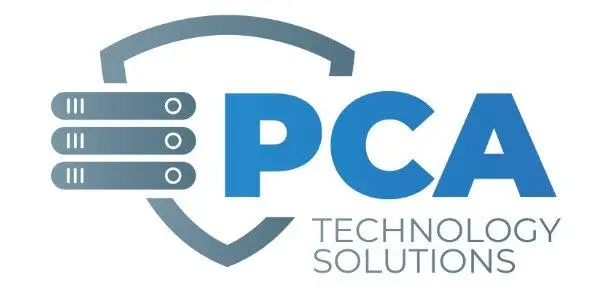Master Your IT Budget
Technology Budgeting: Take the Guesswork Out of Planning for Business Success
"Fail to plan your IT budget, and you're planning for your business to fail."
Navigate the complexities of IT budgeting with confidence and clarity. Discover strategies that align technology investments with your business goals for sustained success.
Although it may sound dramatic, a poorly thought-out IT budget can seriously harm your company in today’s digital-first world.
Technology is now the foundation of efficiency, innovation, and growth rather than merely a support system. Your company may stay ahead of competitors who are using IT planning as a strategic weapon if you have the appropriate resources and a realistic budget to keep them up to date.
In this blog, we’ll go over the basics of IT planning and budgeting, how to create a substantial IT budget, typical mistakes to avoid, and why it’s crucial for long-term company success. By the end, we think you’ll be more prepared to match your strategic objectives with your technological investments, revolutionizing your company and spurring expansion.
Understanding IT Budgeting
The Foundation of Business Success
In today’s fast-paced digital landscape, technology budgeting is more than just a financial exercise—it’s a strategic necessity. By effectively planning and allocating resources, businesses can ensure they are equipped to meet current demands and future challenges. This approach not only optimizes spending but also aligns technology initiatives with overarching business objectives, paving the way for innovation and growth.
The Importance of IT Budgeting
Why Every Business Needs It
IT budgeting is the process of planning and managing expenses related to technology within an organization. It is crucial because it helps businesses allocate resources efficiently, avoid unexpected costs, and ensure that technology investments support business goals. By having a well-structured IT budget, companies can enhance operational efficiency, foster innovation, and maintain a competitive edge in their industry.
Key Benefits of IT Budgeting
Facilitates Strategic Alignment
Aligns IT spending with business goals to ensure resources are effectively utilized.
Facilitates Predictability
Provides a clear financial roadmap, reducing unexpected costs and financial surprises.
Encourages Innovation
Allocates funds for new technologies, fostering a culture of innovation and growth.
Prevents Downtime
Ensures critical systems are maintained and upgraded to minimize disruptions.
Enhances Security
Allocates resources for cybersecurity measures, protecting sensitive data from threats.
Improves Efficiency
Streamlines IT operations, leading to cost savings and improved productivity.
Supports Scalability
Prepares the business for future growth by planning for scalable IT solutions.
Optimizes Resource Allocation
Ensures that IT resources are allocated where they are most needed.
Steps to Create an IT Budget
It is doable to create a manageable IT budget. Our committed solutions experts are prepared to assist you in analyzing and determining the appropriate budget for your company. In addition, you can take the following actions to develop a thorough plan that positions your company for success:
1. Maintain an Up-to-Date Inventory List for IT
Assessing your current technological assets should be your first step. Among them are as follows:
- Hardware includes computers, servers, printers, routers, and more.
- Software includes programs, patches, licenses, and operating systems.
- Network infrastructure provides connectivity tools, switches, and firewalls.
- Tools for security: firewalls, encryption software, and antivirus programs
You can set priorities for your expenditures and make sure you know what you own by keeping a thorough inventory.
2. Assess Each Asset's Performance and Condition
After you have your inventory, evaluate each asset’s condition. For example:
- Are you less productive because your PCs are running slowly?
- Do you need more space on your servers?
- Does outdated equipment put your company at risk for security breaches?
To preserve optimal efficiency and reduce the chance of failure, we advise replacing PC workstations every five years and servers every seven.
3. Determine Your Company's Objectives
Your overall business goals should be reflected in your IT budget. Consider this:
- Are you planning to increase operations?
- Do you wish to use digital platforms to improve the client experience?
- Does boosting efficiency need automation?
Your company objectives will determine your IT spending priorities.
4. Determine Which IT is Essential to Reaching These Objectives
Decide which IT investments will help you reach your goals once they are established.
For example:
- Think about using AI-powered chatbots or CRM systems if you want to improve the customer experience.
- Emphasize reliable servers and automation software to boost operational efficiency.
"If you're going to drive innovation and growth, budgeting for it aligns with investments, your organization's strategic goals, enabling digital transformations and processes, automation, and customer experience enhancements."
5. Using IT for Forecasting
Predicting future technological requirements and the corresponding expenses is known as forecasting. This comprises:
- Expanding your IT setup to cope with expansion.
- Accounting for increases in software and hardware prices as well as inflation.
- Preparing for unforeseen costs, including urgent repairs or security breaches.
A proactive IT budget means that your company stays ready and strong.
Common Pitfalls in IT Budgeting
Excessive or Insufficient Spending
Overestimating or underestimating IT needs can lead to financial strain or missed opportunities.
Not Receiving the Required Specifications While Upgrading
Failing to specify exact needs can result in inadequate or incompatible technology solutions.
Not Organizing Your Spending
Lack of a structured budget can lead to inefficient use of resources and financial chaos.
Ignoring Future Trends
Neglecting to consider emerging technologies can leave your business behind.
Underestimating Security Needs
Failing to allocate sufficient funds for cybersecurity can expose your business to risks.
Overlooking Maintenance Costs
Neglecting ongoing maintenance can lead to unexpected expenses and system failures.
Lack of Communication with Stakeholders
Not involving key stakeholders can result in misaligned priorities and budget conflicts.
Failure to Review and Adjust
Not regularly reviewing and adjusting the budget can lead to outdated and ineffective planning.
Long-Term Benefits of IT Planning
The Advantages of Strategic IT Budgeting
Effective IT planning and budgeting can significantly enhance a company’s operational efficiency. By aligning technology investments with business goals, organizations can ensure that they are well-equipped to handle future challenges. This strategic approach not only optimizes resource allocation but also fosters innovation and growth, leading to a competitive edge in the market.
Moreover, well-planned IT budgets help in minimizing unexpected costs and disruptions, ensuring business continuity. Companies that invest in robust IT infrastructure and regular updates can enjoy improved system reliability and employee productivity. Over time, these benefits translate into substantial cost savings and increased profitability, making IT budgeting an essential component of long-term business success.
Our Expertise in IT Budgeting
How PCA Technology Solutions Can Assist
PCA Technology Solutions is dedicated to helping businesses navigate the complexities of IT budgeting with ease and confidence. Our team of experts provides tailored solutions that align with your company’s unique objectives and financial constraints. We offer comprehensive assessments to identify your current IT needs and future growth opportunities, ensuring that your technology investments deliver maximum value.


By partnering with us, you gain access to a wealth of knowledge and resources that simplify the budgeting process. We assist in forecasting, planning, and implementing IT strategies that drive efficiency and innovation. Let PCA Technology Solutions be your trusted partner in achieving sustainable business success through effective IT budgeting.
Author

Sean Tappe
Executive VP of Operations, PCA Technology Solutions
Sean Tappe is the Executive Vice President of Operations at PCA Technology Solutions, a role he has held with distinction. Sean’s journey with PCA began in 2008 as a Network Engineer. Through his dedication, expertise, and commitment to excellence, he quickly rose through the ranks within the organization. In his current role as Executive Vice President of Operations, Sean brings a unique blend of technical prowess, strategic vision, and a deep-rooted passion for exceptional customer service. He is known for his meticulous attention to detail, thoughtful approach to problem-solving, and deliberate decision-making process. Sean’s leadership style is characterized by a steadfast commitment to thorough research, enabling him to make informed and impactful decisions that drive PCA’s continued success.
Outside of his professional pursuits, Sean is an avid advocate for community engagement and giving back. Sean enjoys time with his wife and four children, spending time with friends, leading worship at church, and playing various sports and games. Living by the personal motto, “Here to serve,” Sean actively volunteers his time and expertise to various charitable initiatives, reflecting his commitment to making a positive impact beyond the realm of technology.
Explore More Insights

Too Many Cooks in Your Tech Kitchen?
If you are being pulled in multiple directions because you have conflicting advisors, then you will end up confused, and often, far more vulnerable than before.

Vendor Email Compromise: What It Is and How To Safeguard Your Business
Successful Vendor Email Compromise cyberattacks are able to cause significant damage to companies, resulting in over $2.7 billion in losses in 2022.

Top 10 Technology Needs for Logistics and Distribution Companies
The logistics and distribution industry is constantly evolving, and businesses need to stay up-to-date on the latest technology in order to remain competitive. The top technology needs for logistics and distribution companies revolve around enhancing efficiency,...
